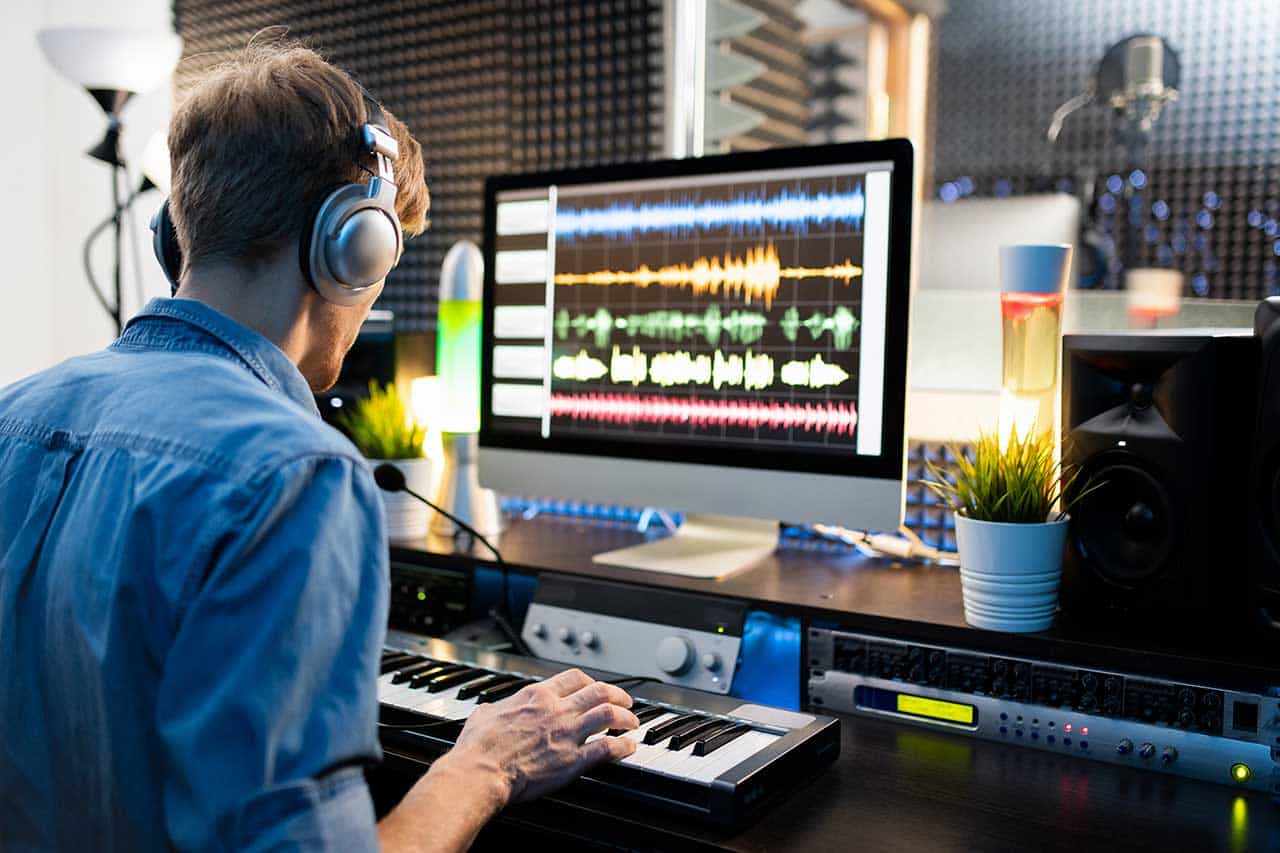Why Branding for Musicians is Just as Important as the Music
Table of Contents
The cornerstone of a musician’s success is, of course, their music. But you could be the most talented musician in the world and fail to get anywhere without effective branding.
After all, musicians effectively function like any other business. They sell a product (their music) to an audience, and therefore need a well structured brand strategy to get themselves out there.
Here at Gee Productions, we appreciate that the idea of branding and brand strategy can seem confusing – and potentially pointless – to musicians. But as branding experts, we know the difference it can make. Here’s why branding for musicians is just as important as the music.
What is branding for musicians?
Simply put, branding is about creating your desired business image in the minds of your audience. Once you start picking apart this statement, though, the idea of branding becomes much more complicated.
Most people consider a brand to be a logo or product/service, but it’s much more than that. The industry definition of a brand is summarized as the gut feeling customers have when they interact with a company’s product or service.
This might seem like a confusing definition when you think of a brand like IBM or Visa, but it actually makes plenty of sense when you think about musicians.
Music is all about emotion: happy songs make you want to dance, sad songs can help you realize and overcome your own negative emotions. Music, at its most basic level, is emotion.
For businesses not in such an emotionally charged industry, this desired gut feeling is often trust or professionalism. But for musicians, it can essentially be whatever you want it to be.
Brand identity vs. brand
To create this emotional connection with your audience, you need a suitable brand identity. Brand identity is the same as a brand, right? Not quite.
Brand identity is effectively the complete opposite of a brand. If a brand is defined as emotion, brand identity is things you can see, perceive, and interact with.
It includes the things many people think of as a brand, such as:
• Logo
• Typeface
• Website design
• Color scheme
• Merchandise
Brand identity is used to influence the way customers feel about a particular brand. Take a couple of well-known bands as examples.
Red Hot Chili Peppers are a world-renowned band. Their brand identity has shifted considerably over their history but one thing has remained true: their logo. It appears on albums, merch, visuals, everything.
While you might not be able to make a face-value judgment of the kind of music they make based on their brand identity, it remains consistent even as they reinvent other aspects of their image.
Weezer is a great example of brand identity for a band. They have a distinctive, recognizable logo, a specific font for their band name, and a clear visual unity among the band’s members.
Another key aspect of their brand identity is their album names. While not true of every album they’ve released, many are based on colors (much like the Beatles’ albums). For example, you have the Red Album, the White Album, the Teal Album, and more. Again, this boils down to a recognizable aspect of their brand identity.
Then let’s consider someone at the opposite end of the spectrum: Lady Gaga. She’s an interesting example because her brand identity changes with each album, but always remains in the sphere of pop visuals.
It’s often colorful with different artistic influences. Her latest album, for example, is heavily influenced by 90s aesthetics. However, it’s still true to her roots as a pop artist. Again, if you took her at face value based on her brand identity, you could make a judgment as to what her music will be.
In short, brand is feeling and brand identity is visual. You can have a successful brand without a carefully considered brand identity.
Working with branding
But how does branding relate to all this? Simply put, it’s combining the two to reach your target.
You use your brand identity to create your brand through the process of branding.
The brand is the result and branding is the process.
To make this journey as smooth as possible, you need a brand strategy. These are the steps you’ll take to clarify your purpose and work out where you want to go.
You have to ask yourself, “Other than for money, why am I doing this? Where am I heading, and how do I get there?”
Thinking about these questions and deciding on some answers will really help you to streamline your branding to arrive at your desired image.
Let’s think about it using an example that’ll hopefully be familiar to most musicians: songwriting.
The songwriting process is your brand strategy, and the end result (the finished song) is your brand. Each of the various parts of a song (verse, pre-chorus, chorus, bridge, etc.) represent different parts of a brand strategy, such as marketing, brand identity, and so on.
During the writing process you think of the story you want the song to tell. In doing so, you aim to connect with your fans over a shared experience or emotion – that’s the entire purpose of writing a song.
Sometimes it can take a long time to write a song, and while some parts may seem more important than others, you can’t have a complete song without each part receiving the attention it deserves.
The same is true for a brand strategy. As a musician, you might feel your social media presence is more important than, say, your website, but you need both to function properly.
Alternatively, you might think that you don’t need to conduct market research. But without it, you won’t know what sets you apart from everyone else and what you can use as your unique marketing points.
At the most basic level, being a musician is about making music. However, if you want to get your name out there (which most musicians do) then you’ll need to work out your brand identity and brand strategy.
Conclusion
Branding is as important for musicians as any other form of business. In fact, branding is something musicians have always done, but haven’t necessarily given it the industry title.
Either way, it’s a vital process for creating a successful identity as an artist.
If you’re a musician in need of effective branding, contact Gee Productions. We can help refine your brand identity and developing an effective brand strategy. What’s more, we know how important this is for musicians. Get in touch for a free consultation and see how we can help.


